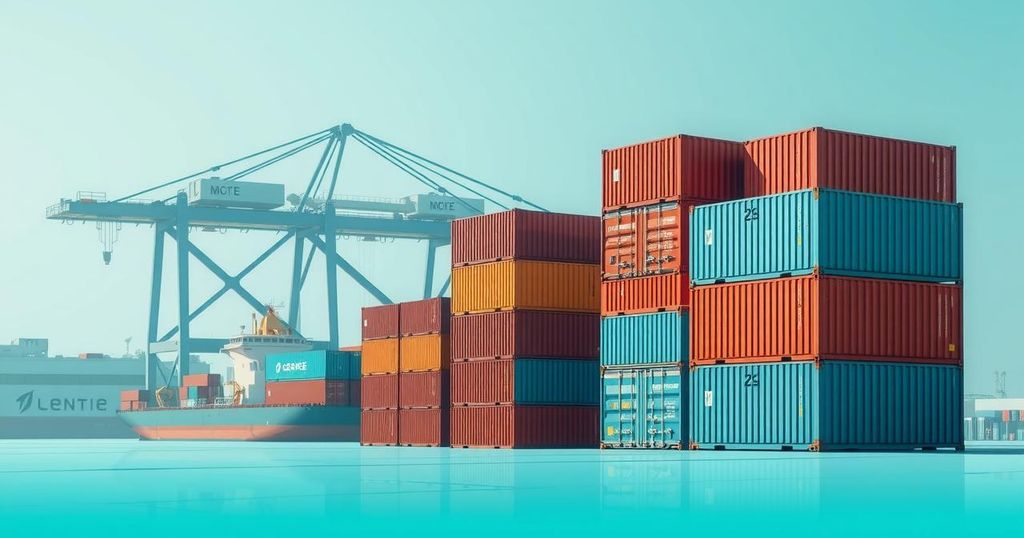President Trump is set to impose tariffs on Mexico and Canada on March 4, alongside a 10% tariff on Chinese imports. This move may affect industries across various sectors and is intended to pressure foreign governments to combat drug smuggling. The global economy reacts apprehensively, with potential for retaliatory measures from affected nations and heightened concerns about inflation and consumer confidence.
President Donald Trump has announced that he intends to impose tariffs on Mexico and Canada starting March 4. This decision also includes a 10 percent tariff on Chinese imports, prompting concerns regarding potential economic repercussions and retaliatory responses from major trading partners.
These tariffs, which had previously been postponed for a month, are expected to affect various sectors, including automotive, agriculture, and manufacturing. This action is perceived as part of a broader economic and security strategy aimed at pressuring foreign governments to intensify their efforts against drug trafficking.
The looming tariffs have caused unease in the global economy, with consumers expressing worries over inflation and possible setbacks in the auto industry if Canada and Mexico face new taxation. Such risks of increased costs and hampered economic growth may pose political challenges for the Trump administration, as consumer confidence significantly dropped in February according to The Conference Board.
In a recent Truth Social post, Trump highlighted the growing issue of illicit drug smuggling into the United States, particularly fentanyl, stating that import taxes could compel other nations to take action against trafficking. He asserted, “We cannot allow this scourge to continue to harm the USA, and therefore … the proposed TARIFFS … will, indeed, go into effect, as scheduled.” Additionally, he announced that a further 25 percent tariff might be imposed on European countries.
Prominent figures have reacted to Trump’s announcements. Mark Carney, a candidate for Canadian Prime Minister, remarked, “Canada will not bow down to a bully. We won’t stand by as illegal U.S. tariffs hurt our workers and their families.” Furthermore, Polish Prime Minister Donald Tusk insisted, “The EU wasn’t formed to screw anyone. Quite the opposite … to create free and fair trade.”
While Mexico and Canada have not yet indicated retaliatory measures, they are anticipated to respond similarly. Trump has also indicated that updates regarding trade policy could arise on April 2, potentially escalating tensions further. Investors are advised to watch for emerging signs of instability within the markets in the coming weeks.
Update 2/27/25, 11:19 a.m. ET: This article has been updated with additional information.
In summary, President Trump’s announcement of tariffs against Mexico and Canada set for March 4 raises significant concerns about economic impacts and potential retaliatory actions. The tariffs are integrated into a wider strategy against drug trafficking, but they also risk increasing consumer prices and undermining economic stability. Global market reactions will be closely monitored as these developments unfold.
Original Source: www.newsweek.com




